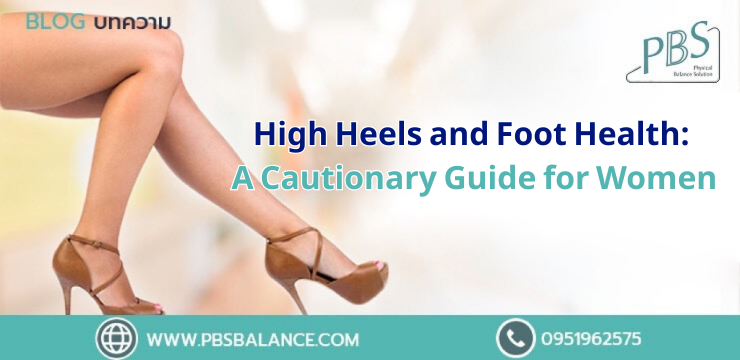
Understandably, many women want to look elegant and well-groomed—especially in social or professional settings. High-heeled shoes are often chosen to enhance physical appearance and convey sophistication. However, prolonged or regular use of high heels may have unintended consequences, particularly for foot health. Women who frequently wear high heels are at increased risk of developing conditions such as plantar fasciitis, flatfoot deformity, and various structural foot abnormalities.
Frequent High Heel Use Can increase the Risk of Acquired Flatfoot
Flatfoot (or fallen arches) is typically associated with congenital factors or musculoskeletal development during growth. However, in some women between the ages of 45–65, long-term use of high-heeled footwear may contribute to the development of adult-acquired flatfoot, particularly when associated with posterior tibial tendon dysfunction (PTTD). This condition involves inflammation and progressive weakening of the tendon that supports the medial longitudinal arch.
Common symptoms include:
- Pain along the arch of the foot
- Discomfort or swelling around the inner ankle
- Heel pain
- Difficulty or inability to rise onto the toes
In severe cases, patients may lose the ability to perform toe lifts and experience progressive foot dysfunction. This can eventually lead to other foot deformities, further impairing quality of life.
Plantar Fasciitis and Foot Deformities: Common Outcomes of High Heel Wear
Two of the most common foot conditions linked to high heels are plantar fasciitis and toe deformities. These issues can be explained by the following mechanisms:
1. Achilles Tendon Strain and Plantar Fasciitis
Wearing high heels positions the heel closer to the knee, shortening the Achilles tendon over time. Once the shoes are removed, walking with a normal heel-to-toe motion can result in tightness and strain. This increased tension contributes to inflammation of the plantar fascia, the connective tissue that supports the arch, leading to plantar fasciitis.
2. Forefoot Compression and Toe Deformities
Many high heels feature narrow, pointed toe boxes that compress the forefoot. Over time, this can lead to deformities such as:
- Hallux valgus (bunion): Lateral deviation of the big toe
- Hammertoes: Flexion deformities of the lesser toes
- Metatarsalgia: Pain in the ball of the foot
These structural abnormalities are compounded by repetitive stress, poor weight distribution, and inadequate footwear support. Long-term effects may also include joint inflammation, ligament damage, muscle fatigue, and even degenerative changes in the bones and soft tissues.
Lifestyle Modifications for Better Foot Health
While appearance and confidence are important, so too is foot health. Adopting healthier habits does not mean abandoning high heels altogether—it simply means incorporating moderation and thoughtful choices:
- Alternate high heels with supportive, flat, or orthopedic footwear
- Avoid wearing high heels for prolonged hours daily
- Stretch the calf and Achilles tendon regularly
- Rest the feet when possible, especially during long workdays
Therapeutic Solutions and Footwear Recommendations
If you have already developed plantar fasciitis or flatfoot due to prolonged high heel use, there are effective treatments available. PBS offers professional consultation with foot health specialists who provide:
- Custom arch support insoles for flatfoot correction
- Plantar fasciitis-specific therapeutic insoles, designed with deformity correction, to reduce excessive strain on fascia.
- Foot posture assessment and gait analysis to determine the best orthopedic solution
Using custom orthotic devices can significantly alleviate symptoms and improve daily mobility. Replacing high heels with medically designed shoes/devices doesn’t mean sacrificing style—but it does mean regaining foot comfort, preventing further degeneration, and supporting long-term musculoskeletal health.
If you continue to experience persistent foot pain despite trying all natural treatment methods, consult a specialist promptly. At PBS, our team of foot care specialists provides services including custom orthotic insoles for plantar fasciitis and corrective devices for foot alignment. These solutions are personalized to treat the root cause and deliver the best possible outcomes.
Facebook: PBSofficial.TH
Line Official: @pbs.official
Source